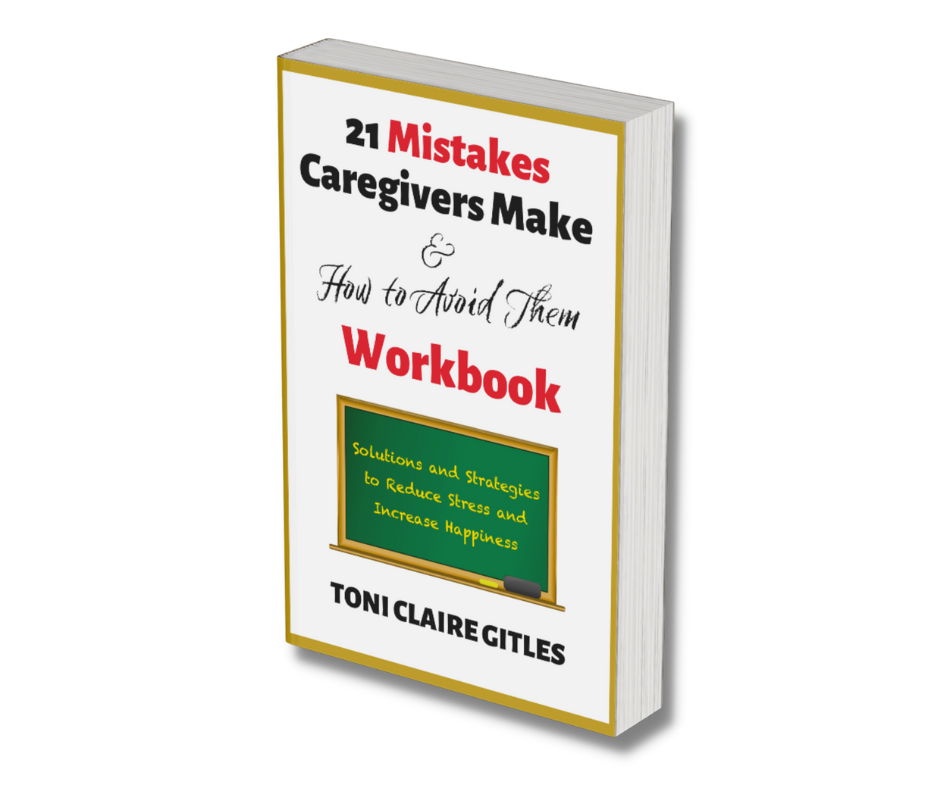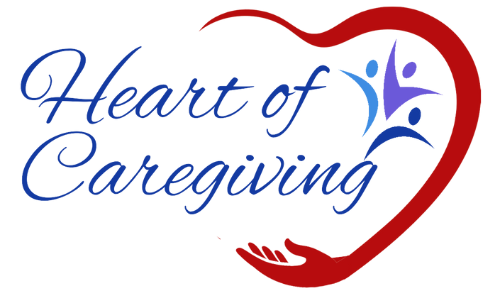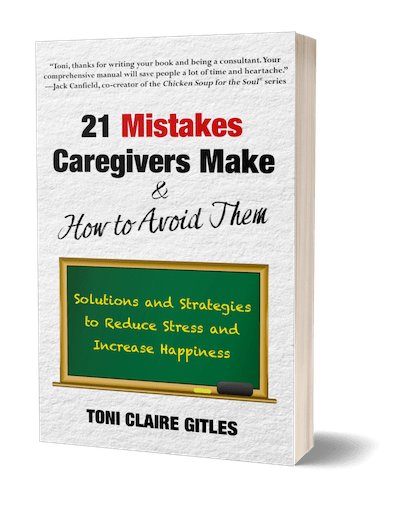Thanks for writing your book and being a consultant. Your comprehensive book will save people a lot of time and heartache.

JACK CANFIELD INTERVIEWS TONI GITLES
She has experienced all the points she discusses. The reader and caregiver will discover techniques and tips for making their caregiving experience manageable and rewarding.
Buy her book now!
down the path of caregiving. She gives voice and truth to the honor of caring for someone we love when the roles are reversed. It is a testament to a love story often untold and which we are totally unprepared for in life–the deepest measure of sharing life with another human being. I highly recommend this book to anyone serving the higher calling of caregiving.
GET TO KNOW THE AUTHOR
HOW THIS BOOK IS ORGANIZED
Part I You are unprepared for a health crisis
A crisis, by definition, is sudden and unexpected. We can be blindsided by a diagnosis or a hospitalization that immediately becomes a medical crisis. During an emergency, our caregiver responsibilities intensify, and expectations of us increase. The stress we experience is compounded by our lack of confidence and fear of making a mistake or the wrong decision. There is hope! We can take steps to prepare for a medical crisis so that we can spend our time as a confident advocate and support to our family member.
Part II Everything changes, and you don’t
Caregiving changes our life’s trajectory and doesn’t get the attention a birth, death, marriage, home purchase, or disease diagnosis receives. We don’t send out announcements, host a get-together, receive words of support, or often even share that we have embarked on a caregiving journey. Understandably, we stay in denial. We can be more in tune with what the future holds when we step out of denial and into awareness. We can watch for the warning signs, face our fear and lean into the learning curve.
Part III You don’t know what you don’t know
When you start a new job, you learn your title, receive a job description, a list of responsibilities is offered and explained, and you are trained in your new role. When we become a caregiver, we may not recognize that our role has a title and a defined responsibilities list that will continue to grow. We can emerge from the overwhelm and take back control by shifting our mindset from helper to Caregiver CEO & Advocate. We can choose which tasks we will keep and which we will delegate and manage, freeing up more time to focus on well-being.
Part IV You don’t prioritize your well-being
When we begin helping a family member, our efforts may only require a few hours a week. As we identify more and more areas to provide help, we begin to prioritize care responsibilities over our hobbies and interests. Resentment starts to build. How can we possibly prioritize our well-being when our family member’s needs are so intense? We can reclaim time, regain energy, and reset our priorities so that well-being rises to the top of the list when we locate help and resources so that we can continue to participate in the activities that give our life meaning.
Part V Ineffective communication skills
When we become a caregiver, we are in a new role, and our prior communication styles may not fit the new situation. We may need to learn new interpersonal skills and ways of communicating with friends, family members, and our loved one for whom we care. You can employ communication strategies to help you rise to the new expectations of your role and be an effective communicator with your loved one and care team members. You can find your voice and learn how to confidently advocate for your family member.
Part VI Not planning for an uncertain future
Denial can feel like a safe space, but it is the most dangerous path we choose when a care opportunity looms on the horizon. You can prepare and be empowered to help your loved one navigate the future. Start the conversation to understand your family member’s current medical, financial, and legal situation and their wishes for the future. You can consult with professionals to understand the options, make better choices, minimize conflict, and be empowered to care and advocate for your loved one.
Part VII Dismissing happiness and celebrating life
Caregiving and happiness can seem mutually exclusive when struggles and worry are all-consuming. Caregiving is complex, with seemingly impossible challenges. Our negative thoughts and beliefs add to the suffering and pain, creating stress, worry, guilt, and arguments with family and friends. There is an alternative. You can find happiness while you face struggles. Remembering our Why, our source of strength, our raison d’être is vital. We can look for new ways to receive and give love and celebrate life and our loved one each day.
HOW TO READ THIS BOOK
Each mistake has the same format and begins with an introduction and a story followed by highlights of why the mistake is important and why it may be difficult to implement the solution. The action plan is next, which may be a checklist or step-by-step approach. You personalize the information here by answering questions and creating your caregiver action plan.
Each part is a focus for a set of related mistakes. Each mistake is an independent unit, so feel free to read them in any order and read the ones that apply to your current situations and needs first.



